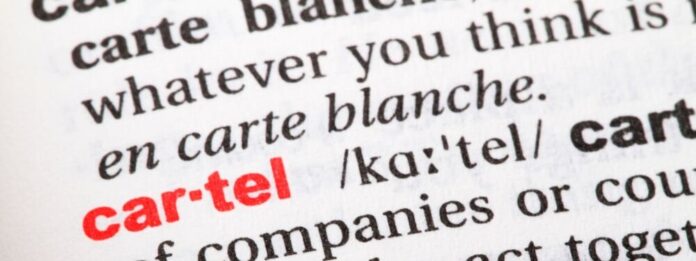By Angeliki – Myrsini Spiliopoulou,
In November of 2024, the E.U. revealed the real picture of the free market and made us wonder if the market functions properly. Statistics referred to corporate cartels, point out the amount of cases that have troubled the court for the last thirty four years and the fines they had to impose. The numbers are great and the thought that there are big companies who, through corporate cartels, tried to control the competition and, sometimes, managed higher prices than the ordinary for their products, seems terrifying.
Nonetheless, consumers are not unprotected. The “Treaty on the Functioning of the E.U.” and, especially article 101, forbids agreements between corporations that could “have as their object or effect the prevention, restriction or distortion of competition within the internal market”, and finally harm consumers interests. Five more important types of agreements, indicated by law in a –non numerus clausus– list, are:
- stipulating maximum and minimum prices of their products.
- forbidding to each of the members to produce more or less than a fix quantity.
- splitting the mass market and the suppliers into groups that each member will control.
- unjustified refusal of trading with specified consumers. Bundling.
Those kind of agreements can be separated in two categories: vertical and horizontal. The first category contains agreements between companies that are on different chain in the circle of production, such as production and distribution companies. In contrast, the horizontal restraints are referred to deals between corporations that provide the same services, for example two companies producing dairy products. Corporation cartels belong to the second category and they are a result of concerted practices of companies that try to coordinate their policy regarding competition using the above practices. It is supposed to be the most important restraint because of its affection to the market: competitors who are not involved to this deal have less or no opportunity to operate and as a consequence consumers have limited choices.

Empowered with the authority to investigate cases of illegal cartels, European Commission has many tools to achieve it. Not only there are Commission’s investigators, but also citizens who have suspicions or any internal information and companies that are part of a cartel, are encouraged to give in evidence. Especially for corporations in cartels, by acknowledging their illegal actions to the European Commission, their fine may be reduced by 10% or in some cases get fine immunity, if they are the first applying for leniency program. Antitrust law effectiveness is quite obvious. The past 14 years, the number of decisions about undertakings is 342 and it was imposed in total the amount of 18.551.971.674 euros. The most significant case with the highest fine for those years was “Trucks” in 2016, with the record fine of 3.807.022.000, where MAN, Volvo/Renault, Daimler, Iveco, and DAF cooperated in order to break the antitrust law, by fixing prices and passing on the costs of complying with environmental rules. Their illegal activity started in 1997 and lasted 14 years, ending after unannounced inspections. As it was revealed, the members of the cartel used to exchange information via internet and by phone. MAN because of revealing the cartel had a very fruitful settlement and was not fined. Unfortunately, taking into consideration that since 2013, there were many more than 10 cartels and the relative fines touched 2.2 billion, it is easy to conclude that car cartels is a very common phenomenon!
Statistics may lead us in two conclusions. The first is the most simple: European Commission for the last years has proved that the protective mechanisms, through antitrust laws, are useful and able to punish the violators. The last conclusion –the most important to understand– is that the free market is an ideal concept and one of its most dangerous enemies, that may cause economy to collapse, is anticompetitive actions by its own powerful members. No one can underestimate the importance of giving choices to consumers for what they buy, an opportunity that may get extinct, if violator companies predominate.
References
- Άρθρο 2 – Νόμος 4529/2018 – Ορισμοί (άρθρο 2 της Οδηγίας 2014/104/ΕΕ). Lawspot. Available here
- Antitrust and Cartels Overview. Europa. Available here
- Antitrust: Commission fines truck producers € 2.93 billion for participating in a cartel. Europa. Available here
- Λάμπρος Ε. Κοτσίρης. Δίκαιο ανταγωνισμού. Eκδόσεις Σάκκουλα. Athens. 2015
- Cartels cases and statistics. Europa. Available here




